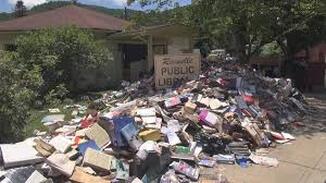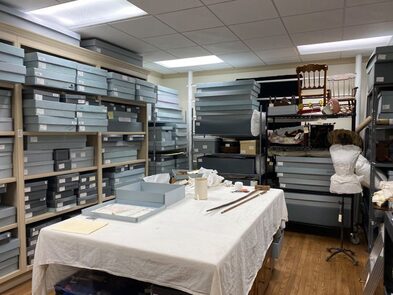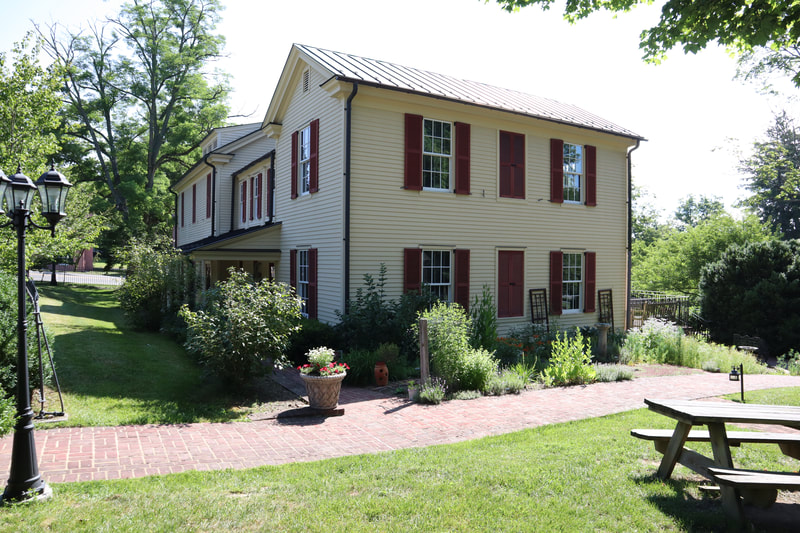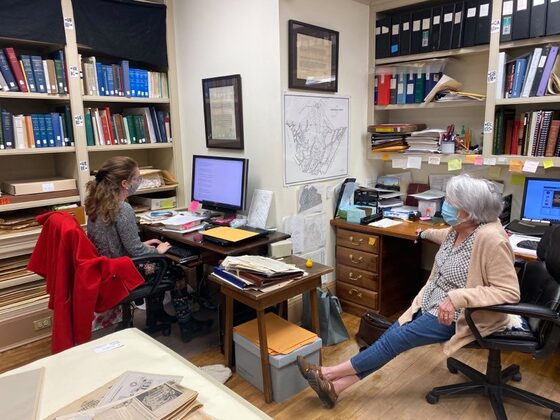Happy Earth Day: Sustainability at the North House MuseumBy AmeriCorps Member - Abi Smith Since the first Earth Day celebration in 1970, each April 22nd is an opportunity to reflect on environmental action and sustainability. As a historical society, we have a unique role to play in promoting sustainability. We like to joke that we’re always thinking in the past, especially when we deep dive into our research (or are running late). However, historical organizations also have a responsibility to consider future generations. If our mission is to preserve the diverse history and culture of the Greenbrier Valley, then sustainability is an inherent part of our mission statement. I decided to take some time this earth day to consider some ways in which we at the Greenbrier Historical Society could be more intentional in promoting sustainability.
 The issue of sustainable collection storage is particularly important in the communities of the Greenbrier Valley. The Valley experiences flooding disasters on a regular basis. Natural disasters, like flooding, can result in the loss of priceless information from private and public collections, as well as family documents. Sustainable collection storage would mean creating disaster plans and storage facilities that are less at risk to destruction. It might also mean working with local communities to create digital copies of private and family collections in case these physical items are destroyed. So how can small organizations work to promote sustainable collections.  One step that we can take here at the North House Museum is to be more intentional in our collecting. Did you know that many museums only display 10-20% of their collection? This means that large portions of a museum’s collection are sitting in climate-controlled storage. Although new additions to our collection are exciting, the constant growth of an organization’s collection is not always sustainable. A sustainable collection is one that an organization has enough staff, space, and time to manage. Museum collections are not intended to hold every artifact of a community’s history, but rather are to be curated collections that can be reworked as the needs of the organization changes. Here at the Greenbrier Historical Society, we are working to improve our collecting to focus on our scope of the Greenbrier Valley. This sometimes means deaccessioning exciting collection items that have no relation to our scope, like historic copies of the New York Times. We can deaccession these kinds of items with the knowledge this information will be preserved in other institutions with a more accurate collecting scope. Preservation of information is a key part of our mission statement, but so is education. Museums are well suited for education as they are designed to communicate to diverse groups of people. Often, environmental sustainability is taught through the science of climate change. However, as a history focused organization, we also have space to teach sustainability. We can teach about historic land use and land management practices. In fact, our newest exhibit opening in May, The Road to Plenty, examines Native American land use and management, and how those practices changed with colonization. We can also teach about the impact of industry on West Virginia’s environment. The lumber and coal industries had a major impact on the land of the Greenbrier Valley, and the effects of these industries still impact our communities. By including discussions of sustainability into the programming we already have, we can provide a framework to help guests better understand the importance of sustainable practices.
The field of museums has been slow to develop sustainable practices. However, as more institutions begin to consider these issues, more museums are beginning to implement sustainability standards. The issues of environmental sustainability can seem overwhelming, particularly for small organizations. It may even make us question our understanding of how museums should operate. However, small, concrete actions will help shift museum and public practices and values to ones that help future community enrichment.
0 Comments
Leave a Reply. |
SOCIAL |
PHONE |
ADDRESS |
814 WASHINGTON ST W
LEWISBURG, WV 24901 |
Experiencing issues with this page? Email [email protected].



 RSS Feed
RSS Feed
